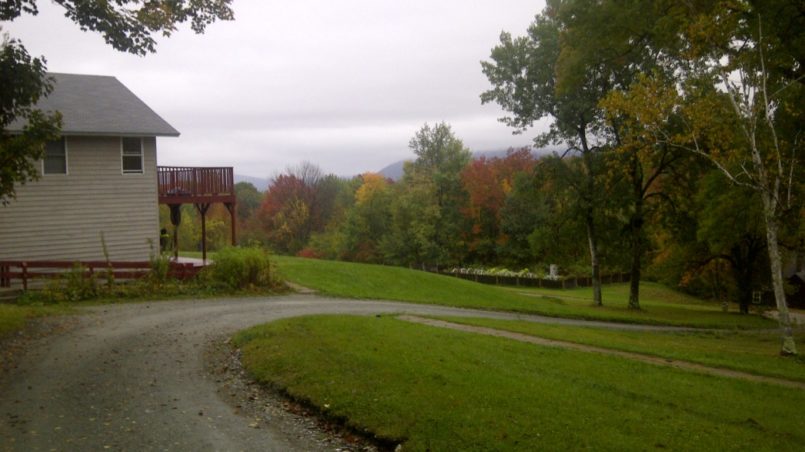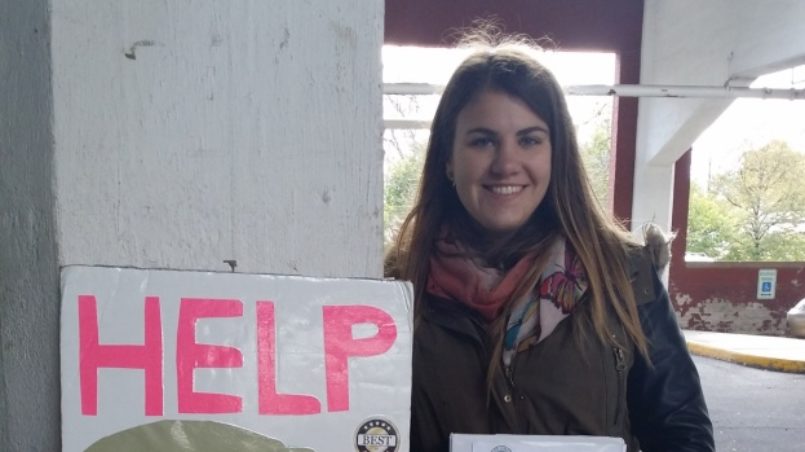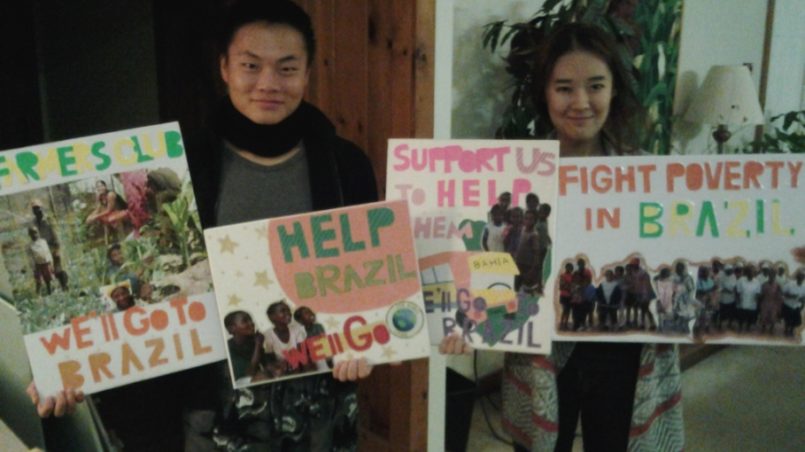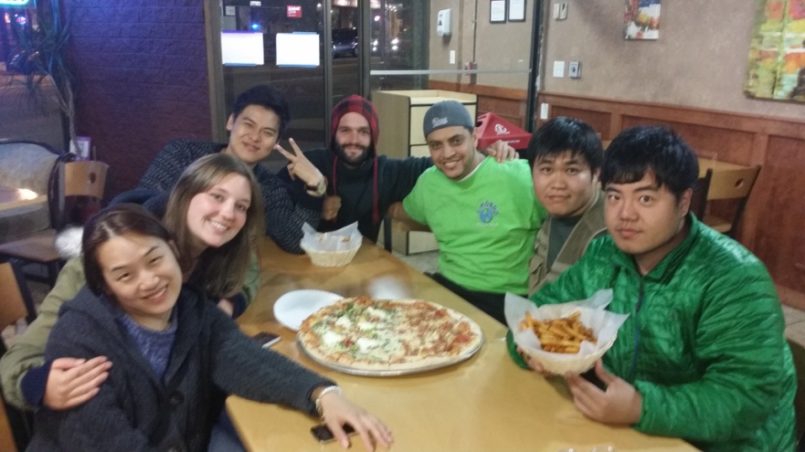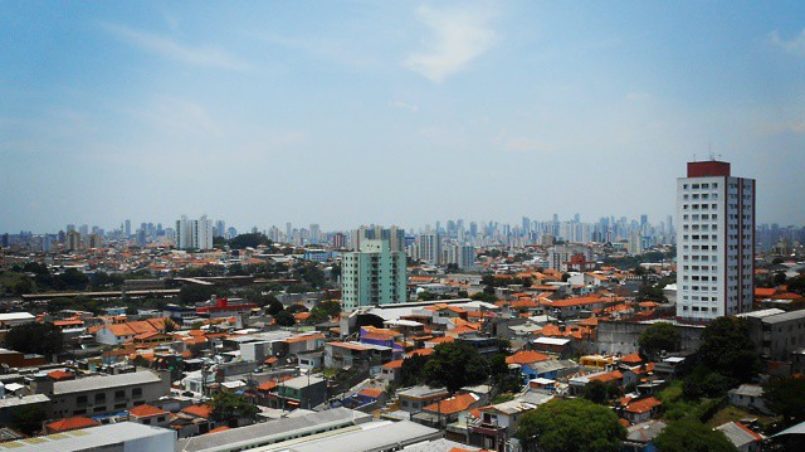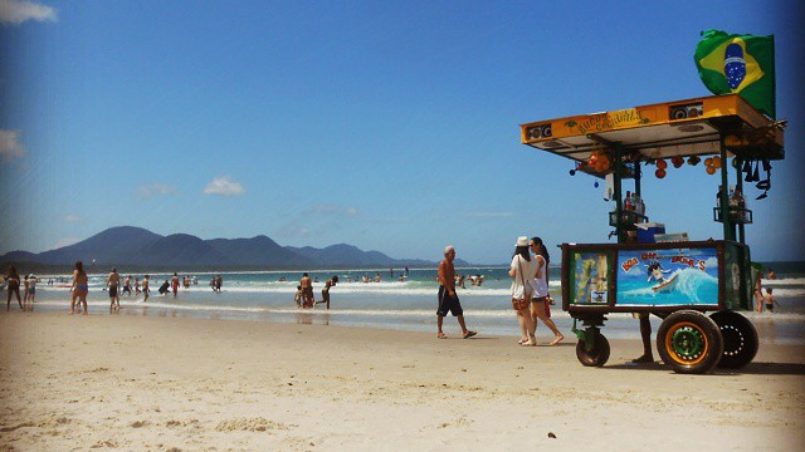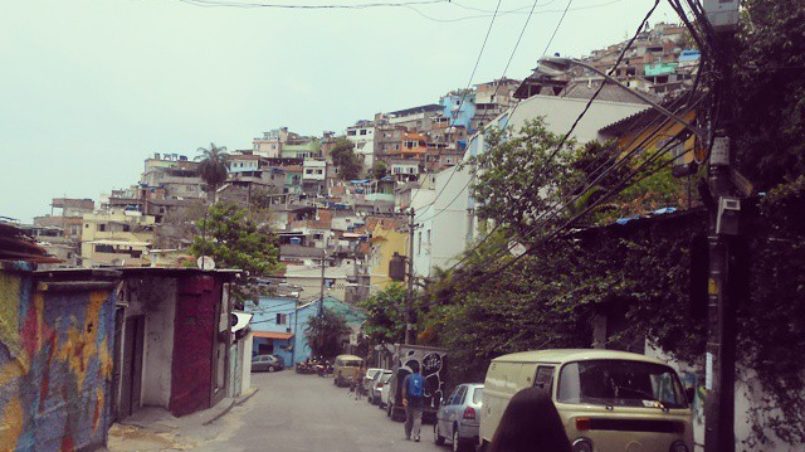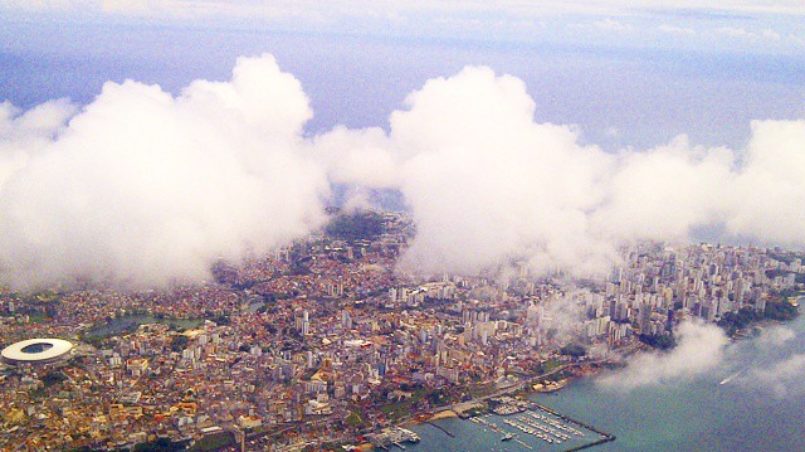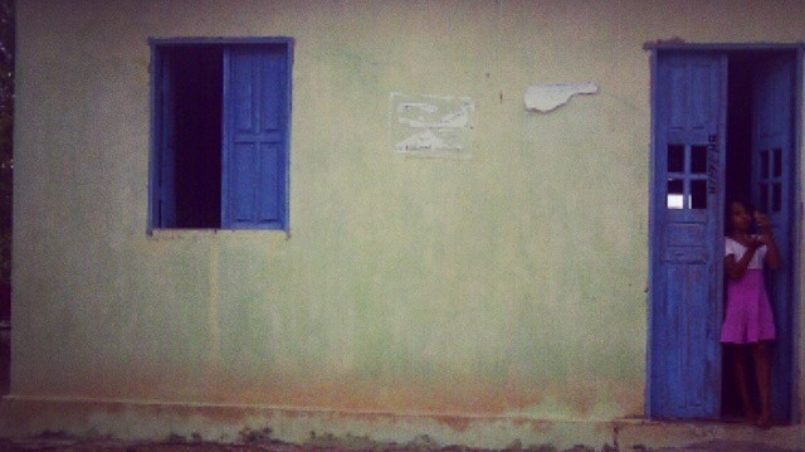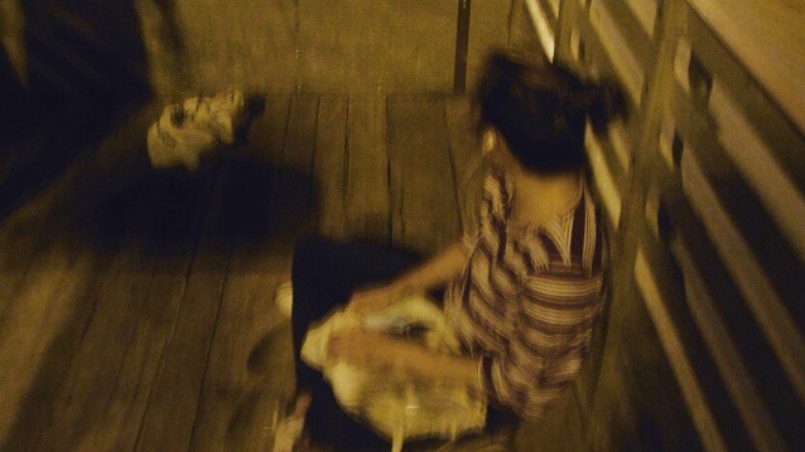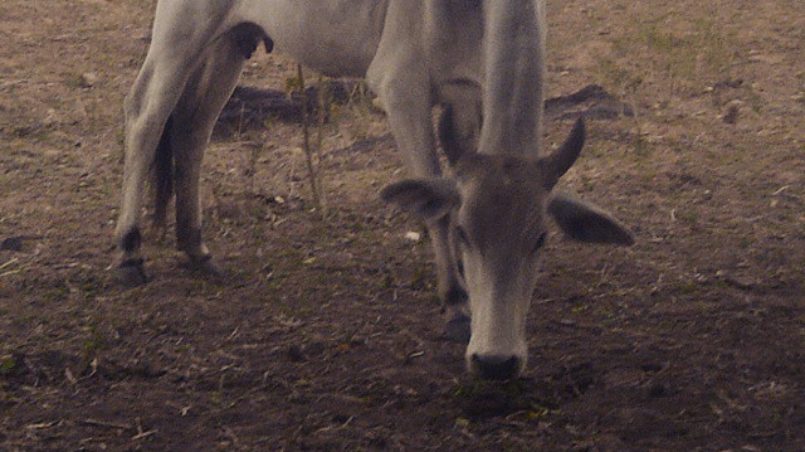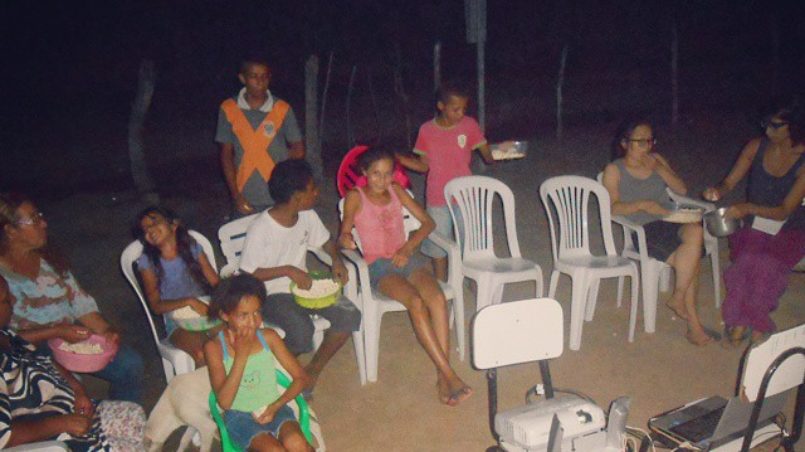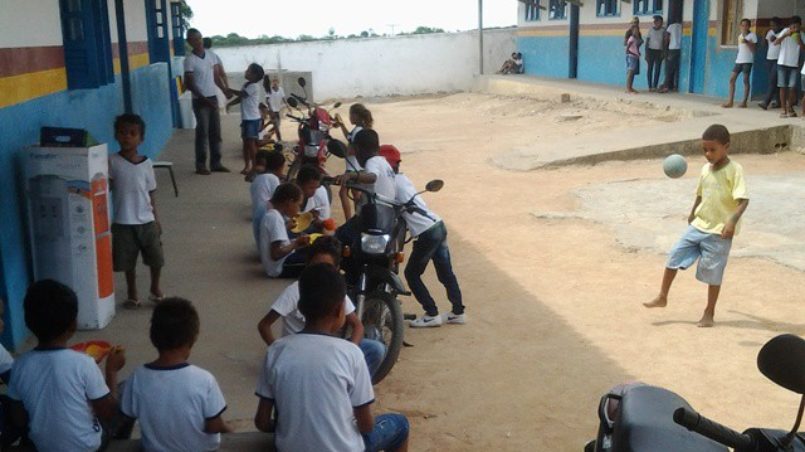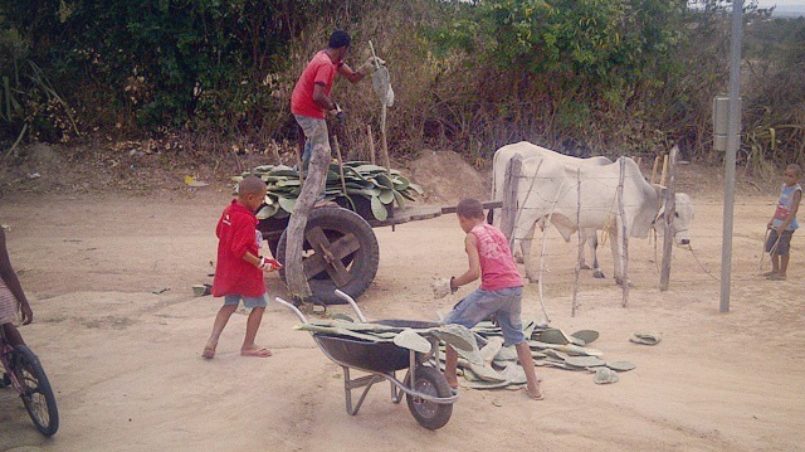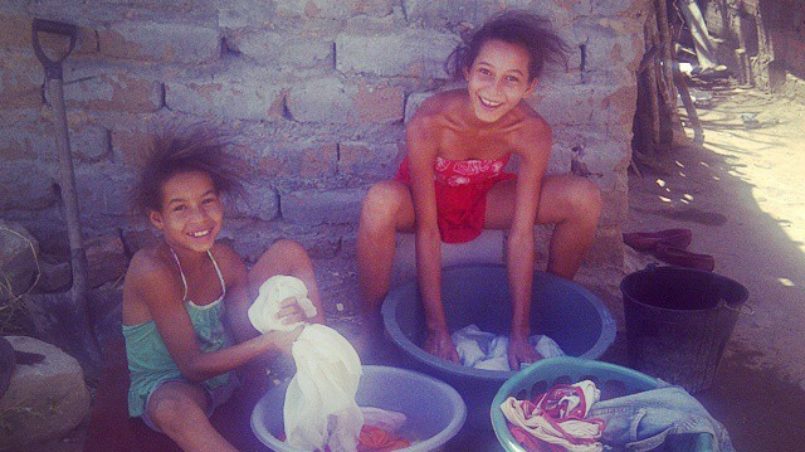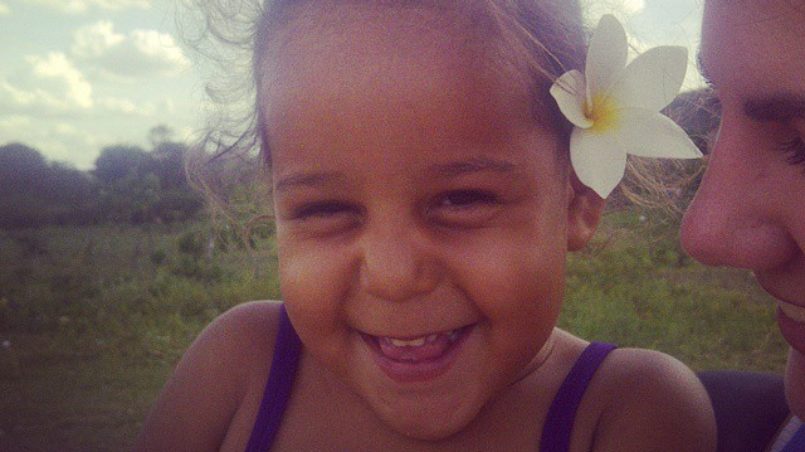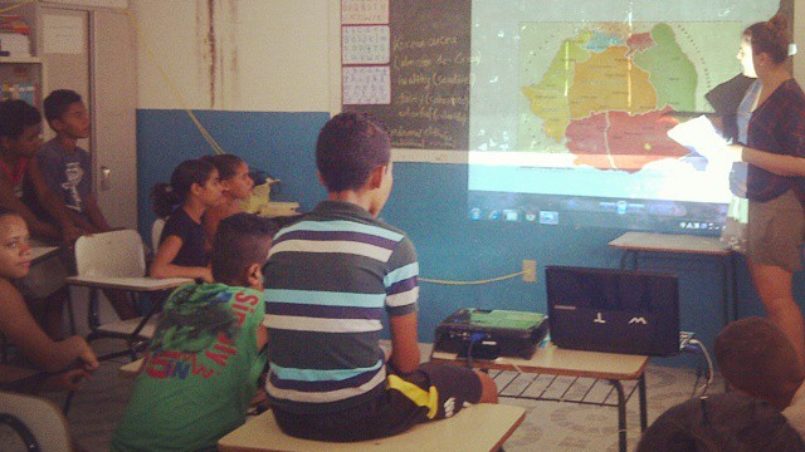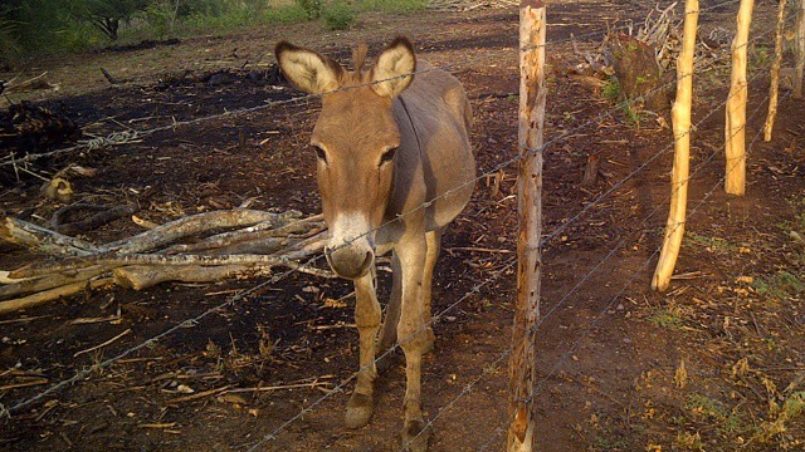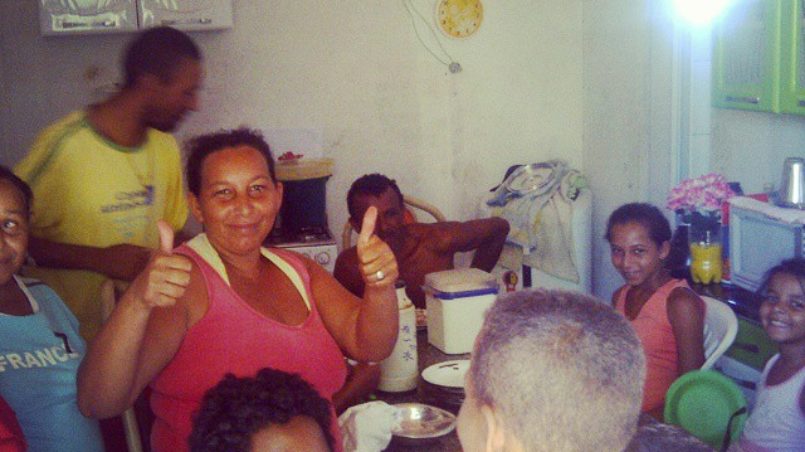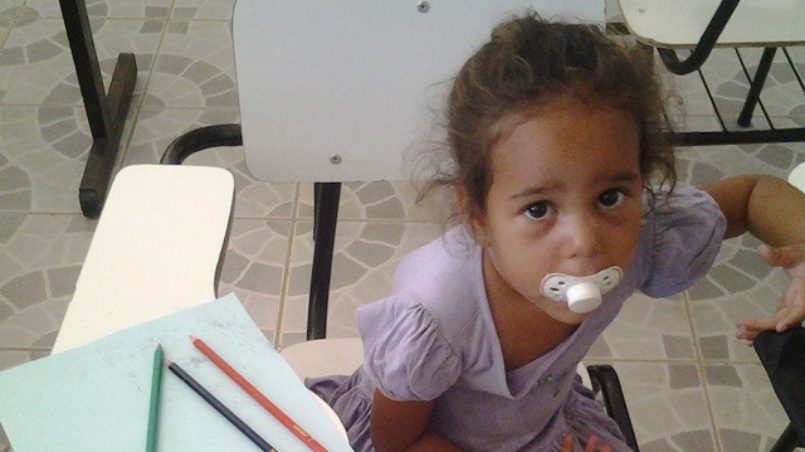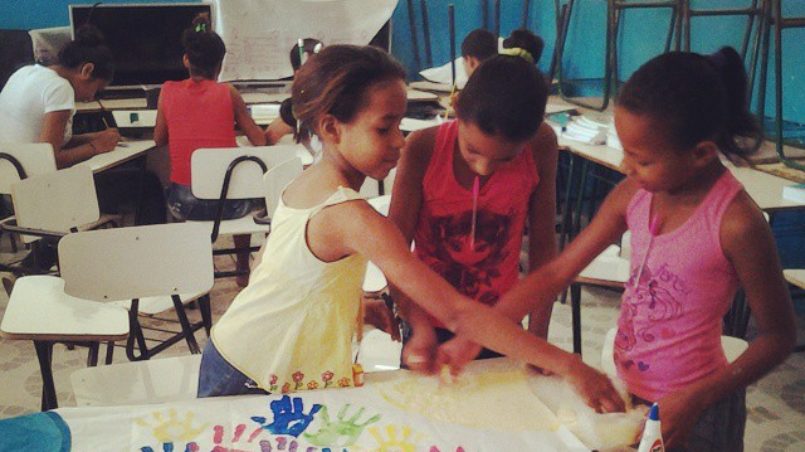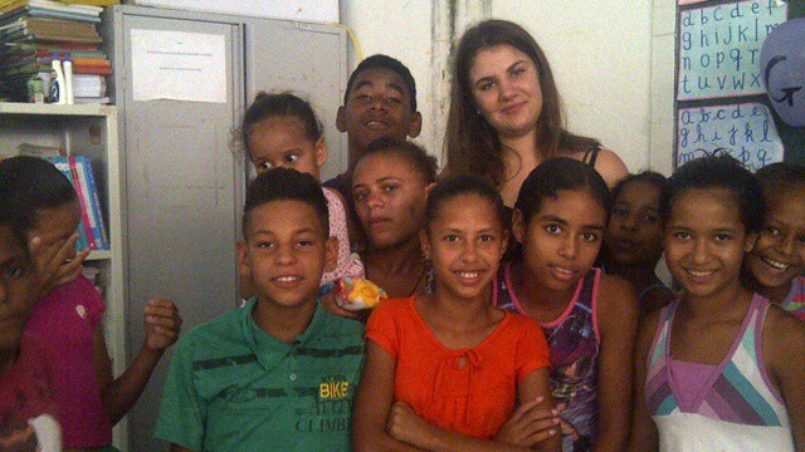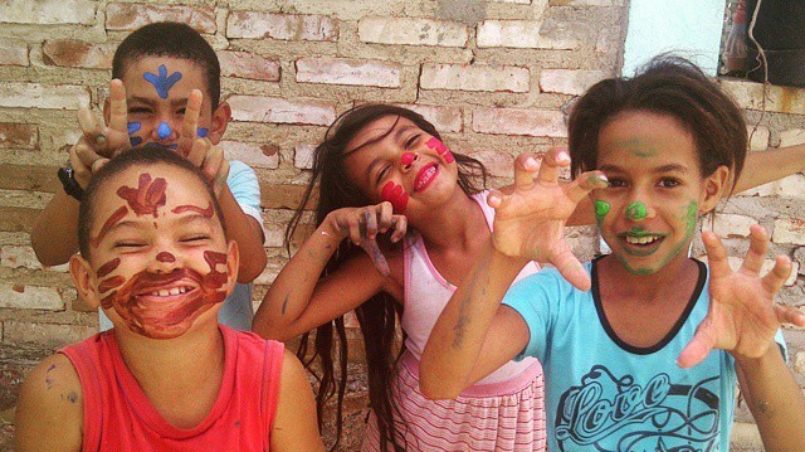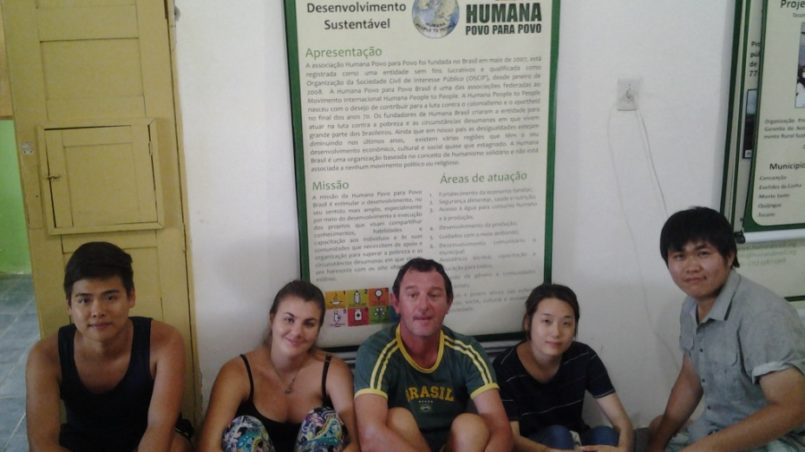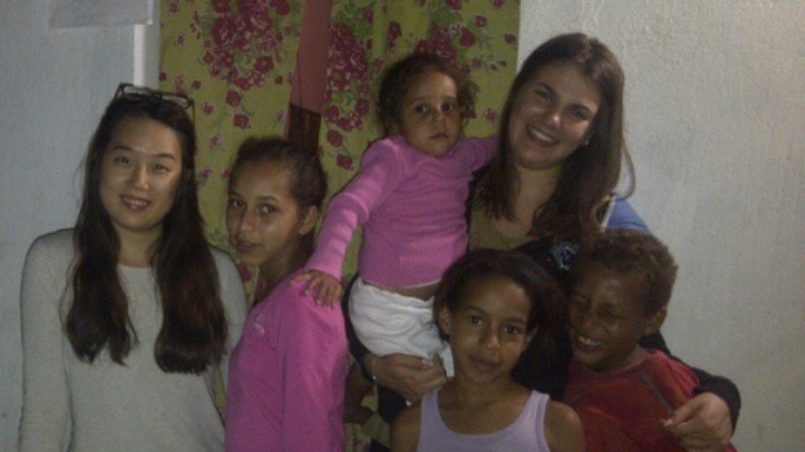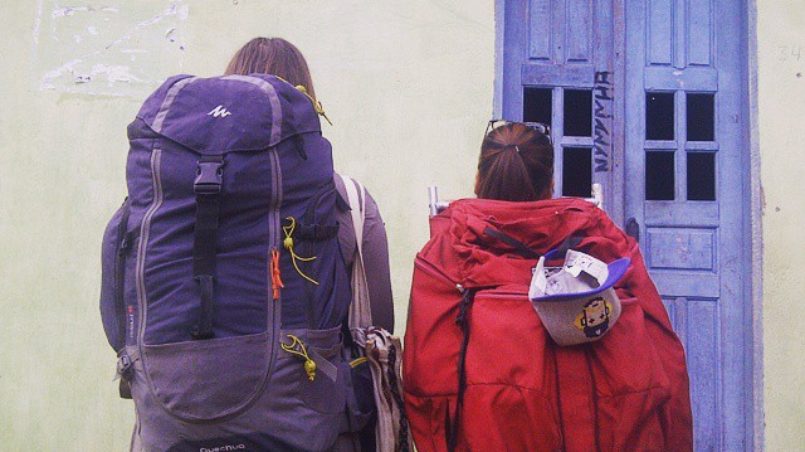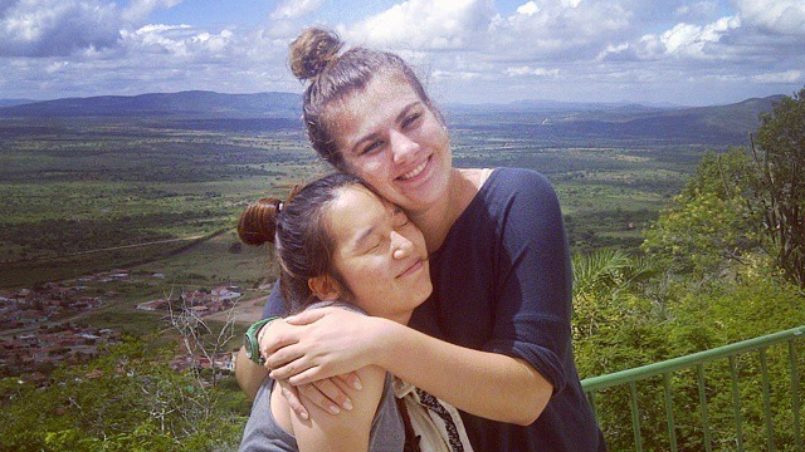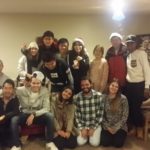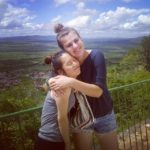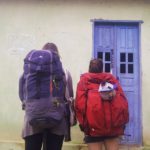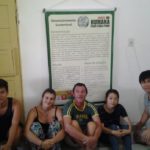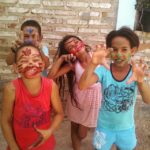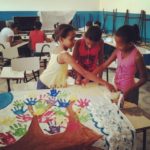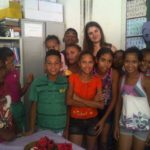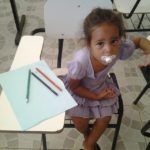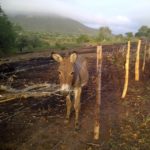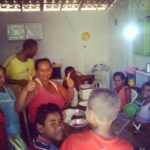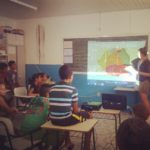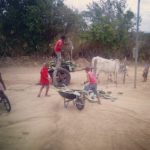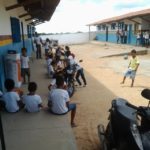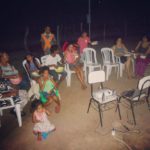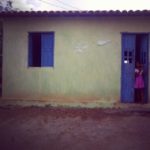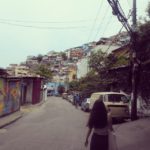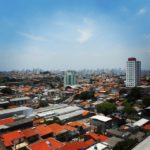IICD-HUMANA
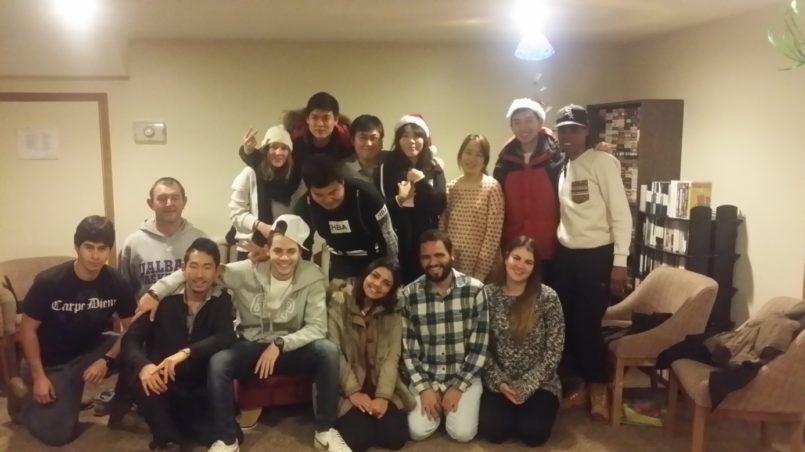
I remember I was in my senior year when I started to feel a lot of pressure having to decide:
Which university I was going to attend next year.
Everyone around me was asking if I chose my domain; parents, teachers, and friends altogether. Surprisingly, I always had an answer up my sleeve that was better than: „I don’t know!” So my answer was varying from architecture, nutrition, medical veterinary to psychology, and law school. I could definitely see myself working in those fields, but it wasn’t what I felt. I felt that I needed something else.
In a winter day, I found online this volunteer program from IICD (Institute for International Cooperation and Development); tt seemed too good to be true:
Fighting with the poor – 9 months South America Program.
It was developed over a period of 9 months (as it hints in the title), and it was split in three periods: 3 months fundraising in the USA, getting to know the team, learning Portuguese, and finding out information about the project I was going to be involved in under the Humana People to People organisation; 1 month traveling in Brazil, joined by my team, and investigating a topic of our choice regarding the political/economical status of Brazil; and last but not least, spending 4 months in the poor communities of Bahia, helping to the development of the area. After this period of time, we would have to return to USA, share our experience and help in the training of the newcomers that are suppose to leave for Brazil. And this whole experience would cost 4,000$.
It all sounds lovely, doesn’t it? Really complex and well organized, almost giving you the feeling that you are working with professionals.
Well … it was definitely lovely, but not because of the organization …
To continue with my story, after I saw this beautiful presentation I could already see myself being part of this plan. I felt as if this whole program was made especially for me. So without having any more patience, I told my parents about my crazy idea, and they reacted really well. What I loved about their approach was that they never said „You can go” but they also didn’t say „You can’t go”, so it was all on me. They were neutral. I immediately forgot the idea of studying abroad and used the money to enroll.
When I arrived to in the school (IICD) that was located in Williamstown, Massachusetts, I was surprised to find out that it was actually placed on a hill, in the middle of the forest. Access to the city was available only with the car most of the times. Since I also usually live near the forest, I immediately felt at home having such a familiar surrounding. On the other hand, I was not familiar with the mice inside my room that were digging through the garbage at night, or with the very cold temperatures. I remember I was sleeping with so many layers of clothes, and I would never dare to take my hand out of the blanket. But I didn’t really care because I was to excited to be there.
What was also another really big inconvenience was that the internet was extremely slow. Especially when we had to prepare our fundraising. In the same time it was pretty cool because people were spending all their time together, while putting their smartphones and laptops away. For me it was the first time when I was in such an international environment. The other volunteers were from China, Korea, Brazil, Bolivia, Mexico, Portugal, Germany, Japan ,and Colombia. It was so wonderful to see how everybody was getting along so well even though they came from completely different cultures.
The school was functioning on a self-maintenance system. In consequence we had to cook, repair, clean, do the food shopping, and we would also have a special schedule and certain responsible people for each department. For me it was a lot of fun, and I was learning various new things, especially about cooking as I was only 18 at that time, and suddenly I was supposed to cook for 20 – 30 persons.
This was just to give you an idea of the atmosphere in the school. After 10 days from my arrival, we started fundraising. My team consisted of 8 people, including me. We were from China, Portugal, Korea, Germany, and Romania. We initially left for Boston to do fundraising for 2 weeks; unfortunately, that turned out to be almost a month. What does fundraising mean? In our case, it was sitting in front of big supermarkets, for around 10 hours, asking people if they would like to donate for our cause. We also tried stopping people on the street (street fundraising), going from door to door, and presenting our cause on fundme.com. Our food budget per day was 4$ for 1 person, and we found places to sleep via couchsurfing (a site where people are offering a place to sleep in their house for free).
So from the beginning the headmaster together with the team leader told us that by the end of our first part of the program we should raise 3,000$ per person. This meant 24,000$ in total. And it was recommended to raise half of the amount in the first fund raising session.
Well, we didn’t manage to do that.
I think we raised around 7,000$ altogether.
After ten hours of standing on our feet, my teammate and I managed to raise 100$ in a joined effort. We were exhausted, the American people seemed to be nice; it depends in front of which store we were sitting. The biggest bill that we’ve received was a 20$ one. For the first day this was not too bad. Ideally we would raise 150$ per person, per day. It was really hard to get used to approach people, and not to feel like I was begging. I had to repeat to myself:
You are not asking money for yourself, you are doing it for the people, and those who don’t understand this, should be left with their problem. Don’t take the rejection personally. It has nothing to do with you.
The Moment I felt even more embarrassed was when we were going to restaurants or pizzerias in the evenings and asked for free food or leftovers. I tried it yesterday, I got all red in my face, and I preferred not eating than asking again. But luckily my team mates saved me. I really wanted to overcome this barrier.
Why did I feel so embarrassed, why did I feel inferior if I was asking for food?
I mean, it is food, a necessity to survive, that people are so easily throwing out. And anyway I will never see the people that I am asking from again. Yep, keep repeating that; that always helps to get your head out of the sand.
Boston, 18 October 2014
This is the first time I am reading from my diaries since I finished the program, and it is so nice to see how much I evolved.
No, now it wouldn’t be a problem for me to go and ask for free leftovers if I would have no food.
After Boston, we went back to IICD. We stayed in the school for 10 days to get our training, and then left for fundraising in New Jersey. This was going to be the longest fundraising. We didn’t manage to raise the money within the 2 weeks that we were suppose to, so we had to stay longer. We stayed 1 week longer, and we still weren’t there. We asked the school if we could go back. They said we could not return without having completed the goal, so we left for Washington where after 10 more days we finally finished our fundraising.
After almost 2 months of fundraising, we finally completed the goal. But unfortunately, along the way, two team members quit. So now, we were 6 that were going to leave for Brazil.
Went back to school, got around 7 more days of training, and then finally we left for Brazil.
My question now is:
Why did we have to do fundraising? Or: Why did we have to pay for the program?
In total, putting together the fundraising and the enrollment fees, each volunteer brought to the school 7,500$ .If we add up all the expenses, this is way too much. After we made the calculations, there were 3000$ left per person that we couldn’t place anywhere; they somehow seemed to dissapear. While I don’t mind them using the money for purposes that have nothing to do with volunteers, I do not like being lied to, and being told that
all the money is used for the sole purpose of the volunteers: accomodation, food, trening, and travels.
Time for our departure in Brazil was really close, so I took my mind off of all these things, and I just enjoyed the feeling of excitement. When I arrived in Sao Paolo together with Eunji, the teammate I chose to travel with, I couldn’t believe that we’ve made it; That after all that hard work, we were there. It was a lovely feeling.
Our travel through Brazil was really amazing. We met awesome people, saw incredible places, fell in love with the culture, and the best part was that I got to share these experiences and feelings with my dear friend Eunji.
In Brazil we worked as volunteers for Humana, which is a huge ONG that has ongoing projects in many different countries: Brazil, China, Mozambique, Zambia, Zimbabwe, Malawi, India, etc. The IICD school is working in collaboration with Humana People to People by sending volunteers in the projects Humana has. There are several schools in Europe, and some in the US that send volunteers for those projects every year.
When we arrived in the small city near our community, where Humana People to People had its offices, I remember that I was quite surprised to hear that they didn’t place us in any community. They said they were astonished to see us coming so soon (even though we have emailed them before), and that we can only start our work in one week, when they will manage to make all the arrangements. We said ok, 1 week of rest before changing our environment won’t be that bad. Then, we heard that there would be no project for us to work in, because Farmer’s club is a new concept, and they didn’t manage to fully implement it yet. We said ok, but we got our „training in it” and for the last 3 months that is what we imagined we would work.
What do you mean you have no project for us? Why did nobody tell us this before? Why isn’t there a good communication between Humana and IICD?
To know that you’ve worked so hard, and invested so much of your time in something that would bring a small positive contribution; to have nothing waiting for you, not even a place to start the work in; seeing that people in Humana disregard the volunteers because they have better more important things to do, is really frustrating! And what I hate the most about it, is that both organizations build up our expectations; that is the problem. If they told you from the beginning how the situation would be, that the communication between the organizations is really bad. You should not expect people from school to be responsible and to have information about you, your team, and the project. If they would warn you that in the community you will have to find work all by yourself, learn the language by yourself, that the training received in the school will be placed second, always after the money, and that in the community you will be left without the guidance of the project leader, you would know how to prepare yourself. You would adjust your ridiculously high expectations, and the strong feelings of frustration and anger would not appear.
Our project leader came to pick us up four hours later than he was supposed to. Normally he is supposed to introduce us to the community, to show us the school, the gardens, what can be done, what do the people need, what project do they have for this community.
What happened was nothing like that:
I told him: “You just came, picked us up and threw us into the community to know that you’ve got rid of us”. And this is exactly how it was. We arrived at night time, he left us there and left, because he had „an important meeting”, as he always says.
Tatu, Brazil, 1 January 2015
Voices of other volunteers:
“The NGO was supposed to be (that was my expectation) the support, the protection, and the safety, for my jump into the ‘nowhere’. That’s why I pay for it. In reality, it was the opposite. What I learned/experienced as a positive part, came from my colleagues and the community. The NGO played the opposite role.”
-Jose, Portugal, Brazil Team –
„ I think most important thing is to get skills as a development instructor, to be able to do an efficient activity in Africa or other developing country. In school there are many nationalities, different generations, different knowledge, and skills. For example, in the school there are preschool teachers, designers, singers and carpenters. Everybody has some special skills. If someone likes to talk, he/she must share the secret or technique of how to talk better or how to make a good speech. I think those things will improve development instructor skill. And actually are very important.”
-Taiki, Japan, Africa Team –
„From an organizational point of view I only didn’t expect that they would focus so little on the preparation of the volunteers. The common life, the classes and courses were organized, the structure of the studies was a bit complex for non English speakers, so that could be better arranged. And the project in Africa has a really good structure but is not organized at all. I just think that they always say that we are a family, but the students don’t really have a voice at the school. The decisions were always taken by the headmaster. But the communication between the school in the US and the projects in Africa failed. I would definitely change the way the school trains the volunteers, by giving real training of what they would be expected to do in the project.”
-Izadora, Brazil, Africa Team –
„I will start by saying that the IICD system of preparing DI’s simply doesn’t work.They use a study system that uses a data base. So basically the students use a computer to study alone and choose some tasks to do. In my opinion that means that the teachers are not willing to teach. Also I think that the preparing time (the first 6 months) were not intense enough. I did a lot of cooking and cleaning and presentations, but not much related to a real training, useful for the project. On the other hand I can say that the people of HUMANA in Africa were better organized than IICD. My time in Africa was valuable, but the time in US was kind of useless. I could have just went directly to Africa and save some time.”
-Tiago, Brazil, Africa Team –
„I think that volunteers are just a source of money. And I don’t mind it if they give us the service they talk about/offer. They sell dreams and lies and this is really frustrating.”
-Gabriella, Bolivia, Africa Team –
„It wasn’t what I expected it to be. Between organization and volunteers, there was terrible communication, and they didn’t even try to communicate with us at all. They said they would teach me Portugese before I go to Brazil, but there was no proper Portugese teacher. And except fundraising money, they didn’t care what we were doing. They didn’t care how we ate, lived, stayed or about our health. All that mattered to them was the amount of money we got. I think even if we got enough money by stealing from somebody else, they didn’t care where we got the money from, as long as we had it. The communication was terrible between Humana and IICD. Between their workers, school, community workers. Whenever we would make a complaint or a proposal they would just ignore us. I think they have to treat volunteers more properly. They have a right to take a rest, eat something healthy, sleep in a proper bed, and if there is a problem while volunteers do fundraising, the organization should have a proper treatment and try to help them. They should have a plan B if they can not make good fundraising. And I still don’t know where that big amount of money went, our fundraising and payment money. I know that when they run such a big organization, they need a lot of money, but I just don’t think that I got proper treatment for my work and investment. I think the people from the community don’t get a proper support from the organization either.”
-Eunji, Koreea, Brazil Team –
Would I do it again?
Yes. But I would do my research about the organization before, contact other volunteers, and I would appreciate it if somebody would tell me the things I have mentioned above, in order to know what to expect. This is the reason why I choose to write this article. I don’t want to be negative, or steal somebody’s experience. I just want to give the future volunteers a heads up. Give them a guide line where they should be carefull.
Is it worth it going through all of this? Definetly!
Overall, it was the best experience of my life. Even with these kind of struggles that I described, I had so much to learn.
It wasn’t so much about learning, but about discovering myself.
I will let my friends that are now volunteering in Humana’s projects in Africa and India, tell you a little bit about the act of volunteering itself, because in the end this is what actually really matters, and I couldn’t have said it better:
„You start with the idea that you want to be useful and to give unconditional help, but you end up gaining some values which you couldn’t gain otherwise. I think volunteering is one of the ‘must do’ things in life. It’s fulfilling your heart when you start to see result of the work you did without expecting any reward. The last 2 years since I am volunteering in an educational project were the most beautiful years of my life. I met so many nice people with whom I will probably be friends for life. I did plenty of things out of my comfort zone, I travelled, I struggled, I fell in love with places and I promised to come back … and all these things made me stronger and more open to the world…offered me a different perspective in life, and showed me how many people are in this world thinking and in need with the same things as I …”
-Geo, Romania, volunteering in India-
„Choosing to volunteer in Mozambique has been one of the best choices of my life because I met wonderful, committed, and knowledgeable people from all over the world. They helped me understand a lot better the issues we as people face everyday as a society, but also the problems that challenge the human’s mind on a deeper level.”
-Stoyo, Bulgaria, volunteering in Africa-

